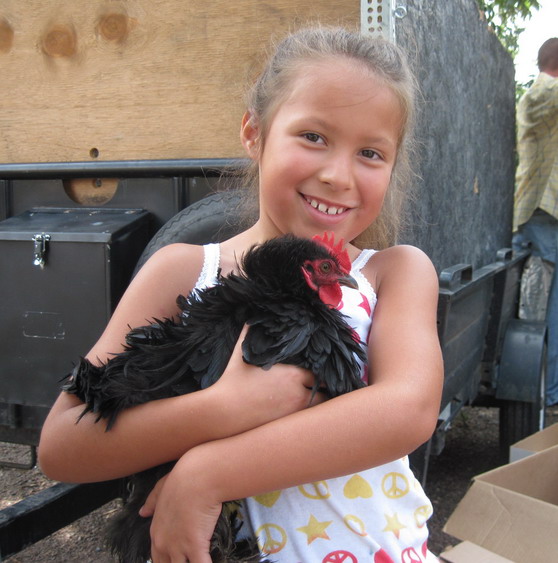
Following in the footsteps of their grandparents, an increasing number of people are expanding their sustainable living education and learning the skills needed to tackle projects such as growing and preserving more of their own food, making cheese and keeping chickens and bees.
“We’re seeing that people really want to do more things themselves and some see the possibility of having to do more things themselves in the future,” says Betsy Burton, owner of Lyons Farmette, which offers classes on cheesemaking, fermentation and biodynamic farming, as a few examples of their offerings that feed a movement called reskilling, the learning of new skills that are actually old skills. “But more than the doom and gloomers, I think people just love it and want to spend more time in their gardens and at home. It’s not fancy. It’s not expensive. It’s just enjoyable and brings people back to the joys of living.”
Some people may be motivated to engage in more hands-on work while others desire to connect more deeply with the Earth or community. And then there are the many environmentalists who want to do more to reduce their use of natural resources. Here are a few options for the budding reskiller.
Organic fruit and vegetable gardening
“Raising your own food is easier than a lot of people think,” says Mikl Brawner, co-owner of Harlequin’s Gardens, which offers low-cost classes such as gardening basics, raising chickens and composting. “But people tend to get more success if they understand the basics. Nature does a lot of the work itself, but it helps to understand water and soil, which are important parts of raising food.”
Growing Gardens also offers intro to organic gardening classes every spring. Their hands-on classes focus on garden planning. Topics include crop selection, starting seeds, soil preparation and transplanting.
Those with planting experience whose thumbs are aching to get a little greener and have an interest in helping others with planting instruction may want to check out Colorado State University Boulder County Extension’s Colorado Master Gardeners’ program. Sessions are offered twice a year and intensive instruction in horticulture is exchanged for volunteer services, which can include answering gardening questions for the community, writing articles or teaching classes.
Cooking
Taking freshly picked produce from the garden to the kitchen and whipping up your own farm-fresh meal sounds delicious, but what if you — like many others who have routinely outsourced meal preparation — have no idea what to do with your tomatoes or squash?
Hands-on classes for cooks of varying skill levels and interests are offered around the county. The Simple Spoon offers instruction in how to make simple yet bold dishes that don’t require a ton of ingredients and are easy to replicate at home. At Roma’s Catering, students start by learning some basic cooking skills and finish having prepared an entire meal. Budding young chefs may want to check out Stir It Up Cooking School, which provides cooking instruction for kids.
For those who prefer to learn at home on their own time, The Natural School of Cookery now offers online cooking classes as well as online support.
“I knew there would be a time when people wanted to and really needed to cook seed foods and once again make it part of daily practice,” says Julianaa Satie, director of The School of Natural Cookery, the Colorado-based, online cooking program.
The focus of their classes is to help people understand natural ingredients and how to put dishes together that are easy, fun and healthy — without recipes. This training helps people make the connection between what doctors and nutritionists say people should be cooking and eating and how to actually make it part of their lives, according to Satie.
Preserving food
Like gardening, preserving food takes some time, but benefits include food safety, developing a relationship with the place your food is grown and a sense of doing real work that will nourish you through the winter season, says Anne Cure, farm manager of Cure Organic Farm.
“People enjoy the work that they put into it, and it connects them to the season,” Cure says. “I see people wanting to do real work that sustains them, and food falls right into that.”
This season, Cure will offer classes in pickling, jam-making and making and canning tomato sauce. Class fees cover the cost of produce, supplies, jars and teachers, and students leave with what they made that day and the skills and recipes to do it themselves at home.
Other farms and schools around the county will also be offering late summer and fall food preservation and fermentation classes, including the Lyons Farmette and CSU’s Boulder County Extension.
Cheese making
Advanced cheese making can be a complex process, but making basic cheeses may not be as hard as you think, explains Burton of Lyons Farmette. The Farmette offers upcoming classes in cheese making, as well as fermentation, beekeeping, skincare and pie making. Making cheese really just takes a little time and access to a raw cow or goat milk source, Burton says.
The Lyons Farmette offers cheese-making classes for varying levels throughout the year, including a basic cheese making class that teaches students how to make ricotta and mozzarella — the easiest cheeses to make, according to instructor Hilary Van Dusen.
“People really seem to get excited about this,” says Van Dusen. “A lot of people want to know what’s going into their food and the best way to know that is to make it yourself. Plus, making your own cheese is kind of like growing vegetables in your garden — it always tastes better.”
Beekeeping
Many people have an interest in keeping honey bees, but may be intimidated by them, Sweeney says. Growing Gardens offers a series of monthly classes to help beginner beekeepers learn skills and get support throughout their first season of keeping bees.
“With all that’s going on with bees and their dwindling health, it’s important that more people do this — keep bees — so we can continue to establish more colonies around the county,” explains Sweeney.
The Boulder County Beekeepers’ Association also offers beekeeping classes for both novice and seasoned beekeepers who want to refine or update their knowledge. Beyond developing and improving beekeeping skills, the program’s mission is to educate, inform and increase bee awareness in the community.
Raising chickens
Keeping chickens is not too hard or expensive, and a family of five can easily get by with the eggs produced by four to six chickens, says James Bertini, founder of Denver Urban Homesteading. Coop construction is usually the biggest expense, he says, but chickens need an indoor area where they can sleep and stay in times of inclement weather. They also need an enclosed, outdoor area where they can free-range while being protected from predators and escape. Beyond that, they just need to be fed.
“Chickens are kind of like biorefineries,” Bertini says. “You input compost from your kitchen, feed materials or garden clippings, and they output eggs and fertilizer. Beyond being highly efficient, they make fun pets and kids love them.”
Tools and advice
The ReSource Tool Library offers a wide variety of small and grand tools for rent at a low cost and is a local hub of reskilling knowledge.
“A lot of people come to the library to borrow a tool, but end up sitting down with a staff member or volunteer to talk about how to use a tool correctly or for any other do-it-yourself advice we can give,” says Jared D’Arcey, who manages the Tool Library and is often referred to as the “chicken master” by the ReSource Yard staff because of his background in raising livestock.
“People who visit the ReSource Yard and Tool Library really want to do things themselves,” explains D’Arcey. “And, it’s a one-stop shop to get low-cost, repurposing materials and advice on how-to construct anything from a chicken coop to a raised garden bed.”
Respond: [email protected]














